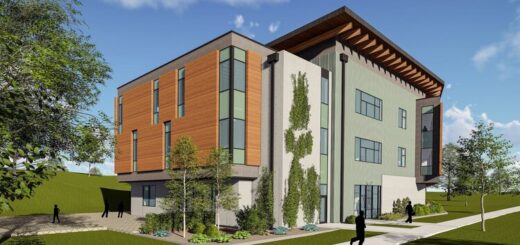The Art of Teaching: Jon Magnus shares insights into connecting with his students
Jon Magnus has keen insights about the art of teaching in today’s public schools that gives us important ways to think about how we can best help our students, teachers and schools succeed.
At the core of his approach is a respect for every student and a commitment to try to understand them at a deep level, allowing him to tailor his interactions to be as motivating as possible. Above all, the art of teaching for Magnus comes down to creating a meaningful human connection with students.
“What I love about teaching is that challenge of creating something within that 85-minute period that is going to touch those kids in a way that they will never forget,” said Magnus.
Magnus, a French teacher at Wenatchee High School, is the 2018 regional teacher of the year for North Central Washington. He has earned well-deserved acclaim for advising the Interact Club at WHS that has built a medical facility in Mali and funded a Habitat for Humanity built here in the valley, among other notable achievements.
The Interact Club’s current project is raising money for Kenzie’s Landing, a trailhead at the end of Maiden Lane that the City of Wenatchee is building on land owned by the Chelan-Douglas Land Trust. This is a way to connect students with the natural world and supporting the community.
This summer, Magnus will lead another group of students to France to fully experience its language and culture. Creating meaningful experiences for students is a hallmark of great teaching.
Kenroy Elementary teacher Veronique Paquette and I interviewed Magnus for the third episode in a series of conversations we are having with celebrated educators. We are calling it the Art of Teaching, and we recorded our discussion with Magnus for my Art of Community NCW podcast. You can hear the entire conversation at artofcommunityncw.com.
Magnus came to education later in life after a career working for Boeing in Seattle and then working in France.
One of the interesting tools he uses to understand students is the Meyers-Briggs personality profile. Understanding how people with different personalities interact has helped him become a more effective teacher. He also pays attention to their life circumstances to further inform his teaching approach.
“When you have a roomful of 32 kids … it’s really a challenge,” said Magnus. There are kids from privileged backgrounds to students from abject poverty. Some have endured heart-wrenching suffering that continues to impact their ability to engage in the classroom and life. There is considerable research documenting that adverse childhood experiences create toxic stress that can severely limit a student’s ability to learn.
“Fundamentally in education, if we are going to be successful in reaching our students, we have to understand the human connection,” said Magnus.
While the information that is gathered about progress through standardized testing has its place, those tests don’t account for other social and emotional factors that impact their performance.
In the classroom, Magnus focuses on creating a positive, personal and constructive atmosphere to encourage students. His approach begins with an underlying respect for students, even those who might be acting up. Showing disrespect will break the connection with a student.
Active listening is another key characteristic of his approach to the art of teaching. Magnus seeks their input, continually asking for feedback to refine his teaching in an effort to better reach them. “I ask them to be brutally honest,” he said.
Creating a comfortable and inviting classroom is important. He sets up his classroom in a unique fashion. Standard seating is not the norm; couches, bouncy balls and tables sprinkle the classroom along with desks. It’s about providing students comfortable places to sit and learn that works for them. This encourages a more relaxed feel leading to deeper learning for his students.
To support great teaching and create stronger schools to meet the needs of students, Magnus believes administrators and legislators need to spend more energy engaging with the various stakeholders in our educational systems to create a deeper understanding of what can be developed.
Magnus’ philosophy of healthy disagreement in thinking is positive. Differing opinions open the conversation… we can learn from each other when the conversation begins.
This willingness to meet people where they are, listen effectively, show respect and assume they have something to teach us is fundamental to creating stronger schools, businesses, nonprofits and communities. These lessons can be widely applied.

